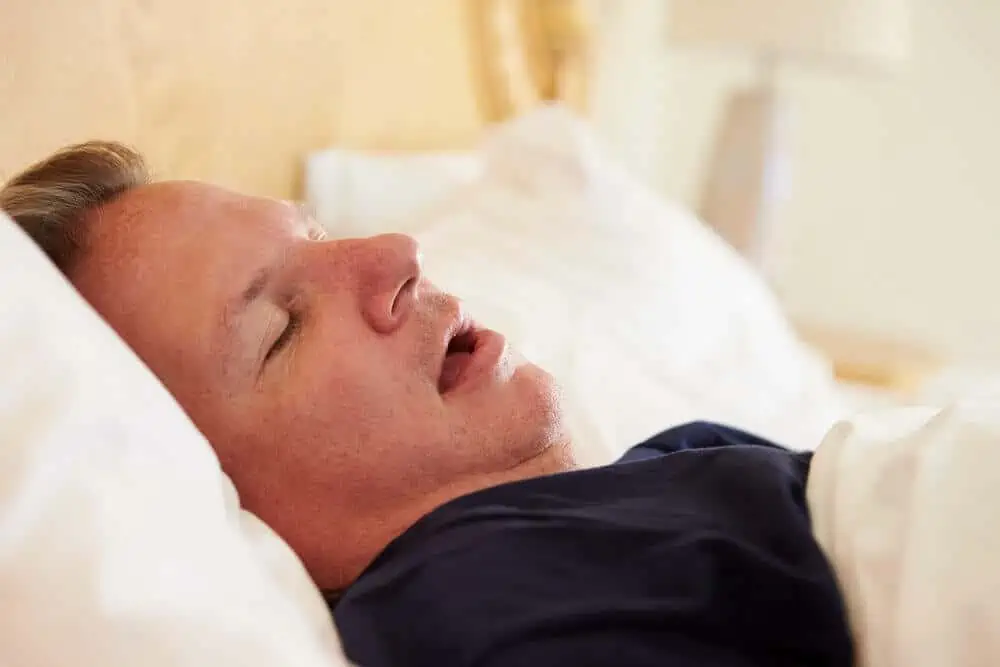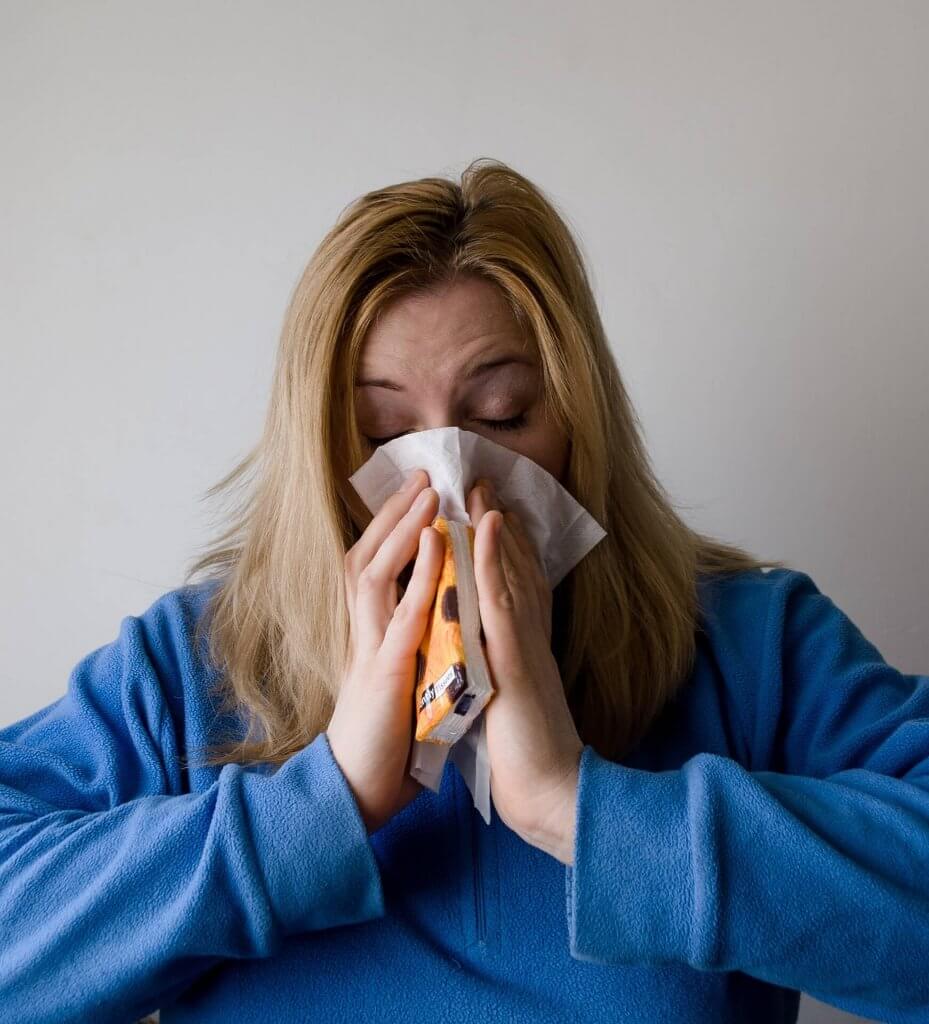Are you wondering how to stop mouth breathing? If you are, you certainly aren’t alone. Many people around the world struggle with this issue. It may be common, but it’s important to address it, both for your oral health, and your overall health.
That’s why in this article, we’ll go over some important mouth breathing information, like:
- Why are some people mouth breathers?
- Is breathing through your mouth bad?
- How to stop mouth breathing
- Available treatments, including on the NHS
- Possible home remedies
We hope this information helps you on your road to a healthier you!
What is mouth breathing?

There are two types of air passages inside your body that lead to your lungs. You may be familiar with them: the mouth and the nose. While healthy people use both of these passages to breathe, they predominantly rely on their nose for breathing.
Breathing through your nose is more beneficial for the body. Some of the benefits of nose breathing are:
- The nasal passage helps filter the air that passes through it and clears away any small particles such as pollen.
- The nose increases the moisture in the air to prevent dryness in the airway.
- The nose warms up the air before passing it to the lungs.
- Nose breathing increases resistance to the air which then increases the oxygen uptake within the lungs.
Mouth breathing is a kind of dysfunctional breathing; it doesn’t fulfil the criteria for optimal breathing. But what is optimal breathing and how does it differ from a dysfunctional breathing pattern? The table below will help you understand the differences.
Optimal breathing | Dysfunctional breathing |
Lips are gently closed together | Lips are apart |
Upper and lower arches of teeth aren't closed | The breath is dominant in the chest and neck |
Tongue rests on roof of mouth | Irregular with gasps and sighs |
Quiet breathing | Noisy breathing |
Neck and shoulder muscles at rest | Short exhalations |
Is it bad to be a mouth breather?
In short, yes. Many people breathe through their mouths at night. If you are one of these people, you may not be aware that you do it, and if you are, you might not realise that it’s bad for you.
So why is mouth breathing bad?
Mouth breathing leads to central nervous system fatigue. This negatively impacts your brain creating issues like ADHD and sleep-related disorders. Research has shown that mouth breathing increases the oxygen load in your prefrontal cortex, the area of your brain that controls social behaviour, decision making, and personality expression. Disruption of this area can, therefore, cause multiple issues including ADHD.
Mouth breathing in children can lead to several problems including crooked or crowded teeth, dry mouth, speech impediments, and facial deformities. A mouth breathing child can also face difficulties in normal growth and development.
What’s the relationship between mouth breathing and facial structure? The faces of mouth breathers can take on some unusual features and shapes. This condition is known as long face syndrome. This syndrome occurs because of an overgrowth of the upper jaw due to mouth breathing. Normally, the tongue rests on your upper palate and ensures that your jaw grows sufficiently wide. In a mouth breather, the tongue rests on the lower palate and allows free entry of air which results in vertical growth of the jaw with a much higher and narrower upper palate, resulting in a long face and crooked teeth that often require orthodontic intervention.
The following short video has some more information about the causes of mouth breathing:
Mouth breathing symptoms
Research has identified the following effects of mouth breathing. Many people experience multiple symptoms as a result of breathing through their mouth:
- Dry mouth and cracked lips
- Nasal obstruction
- Bad breath
- Frequent infections of the throat and ears
- Persistent outbreaks of oral thrush (candida)
- Misalignment of teeth
- Speech impediments
- Improper facial growth
- Chewing difficulties
- History of dental problems like gingivitis and dental caries
- Snoring
- Sleep disorders, such as sleep apnoea
- Poor concentration
Causes and risk factors
In order to stop mouth breathing, it is first important to understand the causes and risk factors. There are certain factors that may trigger a person to breathe with their mouth open, both during the day and at night. People who always breathe through their mouths probably have one or more of the following as the contributing causes or risk factors:

- Nasal congestion: Many times, mouth breathing at night occurs as a result of nasal congestion. When the nose becomes congested, it forces the person to breathe through their mouth to get sufficient oxygen. Nasal congestion can be a result of different causes such as chronic colds, allergies, and sinus infections.
- Asthma: The symptoms of asthma include sneezing, coughing, chest tightness, and a feeling that you are running out of oxygen. This may trigger mouth breathing as you struggle to catch your breath.
- Deviated nasal septum: Deviation of the nasal septum may block the nasal passages, and force you to breathe through your mouth.
- Enlarged adenoids and tonsils: When your adenoids and tonsils are inflamed or enlarged, you are at a higher risk of developing hoarseness, a sore throat, and a cold. Because inflamed adenoids and tonsillitis block the upper airway, you may find yourself gasping for air frequently which increases the risk of mouth breathing. The problem is more prevalent in children so mouth breathing babies are often checked for enlarged adenoids.
- Thumb sucking habit: Children with a history of thumb sucking usually have facial and oral muscles that have developed around this habit. This means that even when the thumb is not in the mouth, the lips are unable to form a seal, purely out of old habit. This increases the chances of mouth breathing.
- Tongue-tie: A tongue-tie does not let the mouth close properly which, in turn, impairs nasal breathing. Tongue-tie can also reduce the support to the upper airway system causing sleep disorders.
Mouth breathing treatment
For those of you wondering about the treatment of mouth breathing, there is good news. The simple tips mentioned below can help you overcome this habit once and for all.
- Practice makes perfect: Always try to practice breathing in and out through your nose.
- Clear your nose: One of the most common reasons why people breathe through their mouths is that their noses are blocked.
- Manage stress: When you are under stress, you tend to hurry your breathing, using your mouth to breathe instead.
- Get bigger pillows: If you are wondering how to stop mouth breathing at night, try changing the height of your head as compared to the rest of the body. To accomplish this, all you need are bigger pillows with thicker stuffing.
- Get off the couch: Another way to stop mouth breathing is to exercise on a daily basis. Start off by going for a daily walk. By exercising every day, you increase the need for deeper, fuller breaths. Your nose will eventually adjust to being the main air receptor.
- Seek help from a therapist: Myofunctional therapists are your go-to professionals if you wish to stop breathing from your mouth. This type of therapist will use exercises to retrain the muscles of your face, so you naturally breathe through your mouth.
- Try mouth taping: Try using mouth tape to shut your mouth, especially during the night. This will ensure that your mouth stays closed and you breathe only through your nose. Additionally, you can use a chin strap that not only stops mouth breathing but also prevents snoring. Read more about mouth taping and the best products to use.
- Consider surgery: If none of the above-mentioned options works for you, there might be problems with the actual architecture of your nose. In such circumstances, your doctor can discuss potential options for surgery. Any surgery deemed medically necessary should be covered on the NHS.
Orthognathic surgery is typically recommended when patients have severe jaw problems that inhibit their ability to function properly and negatively affect their oral health. Often, it’s the final recommendation after all other methods have been exhausted.
Patients who are prone to mouth breathing can do damage to their jaw that actually changes their appearance. Long, narrow faces and narrow mouths are two examples. This is commonly noticed in the development years and will likely carry through to adulthood without intervention.
Since the function of the teeth and jaws is essential to oral and overall health, jaw surgery can be exactly what some patients need. It realigns the teeth and jaws to restore and optimize their function resulting in enhanced facial aesthetics and improved breathing, chewing and speech.
Dr Michael Ferguson, Oral Surgery Services

Treating mouth breathing in children
If you notice your child or baby breathing through their mouth while sleeping or during the day, it’s a good idea to speak to a dentist about it. When caught early, a simple device worn in the mouth may be able to correct the habit quite easily. But if the jaw and teeth have started moving out of optimal alignment, orthodontic treatment and even surgery may be the solution.
Conclusion
Mouth breathing is a habit that many people have, and most probably don’t even realise it, especially if they are mouth breathing at night. The problem with this is that breathing through your mouth instead of through your nose can actually cause a number of health and dental problems, ranging from mild to severe.
The good news is, it’s possible to stop mouth breathing with the right treatment. You may want to try some home remedies, but if those don’t work you should speak to a doctor or dentist. The earlier you seek treatment, the less likely you are to experience any long-term complications.
You may also want to refer to the British Snoring and Sleep Apnoea Association who have some useful information on how to know if you’re a mouth breather and what you can do about it.
FAQs
Why do I mouth breathe?
The most common reason why you breathe air through your mouth is if your nose is somehow blocked. However, altered mouth shape from prolonged thumb sucking or genetics are other causes.
When is it okay to breathe through the mouth?
In some cases it becomes OK to breathe with your mouth. Situations where mouth breathing is acceptable include sinus and nasal congestion issues, allergies, and during strenuous exercise.
International Journal of Pediatrics: It Takes a Mouth to Eat and a Nose to Breathe: Abnormal Oral Respiration Affects Neonates’ Oral Competence and Systemic Adaptation. Consulted 15 March 2020.
Journal of Dental Health, Oral Disorders & Therapy: Long face syndrome: a literature review. Consulted 15 March 2020.
Neuroreport: Increased oxygen load in the prefrontal cortex from mouth breathing: a vector-based near-infrared spectroscopy study. Consulted 15 March 2020.
Nursing in General Practice: The health benefits of nose breathing. Consulted 15 March 2020.




